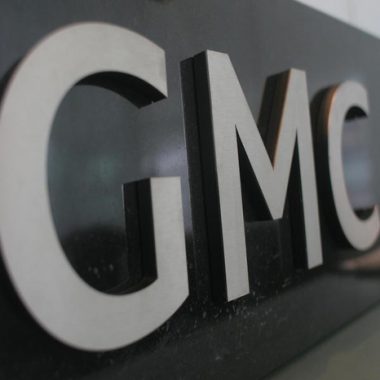Nearly four in five doctors with complaints lodged against them feel the investigation process was ‘needlessly’ long and are more likely to experience depression and anxiety, according to a new study.
The study, published in the BMJ, into the NHS complaints process found that 78% of over 6,000 doctors surveyed felt investigations were ‘needlessly protracted’.
Furthermore, the researchers from Imperial College London found that these doctors are 16% more likely to experience depression and 20% more likely to experience anxiety.
These doctors are also 10% more likely to show signs of ‘avoidance’ in their practice, including evading difficult procedures or not accepting high-risk patients.
This comes as GP leaders passed a motion at the England LMCs conference earlier this month calling on GPC England to lobby the Government for the end of the Friends and Family Test, and practice reviews posted by patients on NHS Choices.
Dr Richard Vautrey, chair of the BMA’s GP committee, said the complaints process is ‘one of the reasons GPs leave medicine altogether’.
He said: ‘Receiving a complaint from a patient can be extremely stressful and the one thing a doctor wants to do is to respond to the patient’s concern and resolve the issue as soon as possible.
‘When other bodies are involved this can take a significant amount of time to achieve and this survey’s findings clearly demonstrate the impact such delays can have on the doctor’s mental health.’
The study asked 6,144 doctors with past or current patient complaints against them to complete an online survey on the complaints procedure.
The report authors urged regulators to only suspend doctors from work as a last resort, as it isolates doctors from their support network.
The study says: ‘Our data suggest this practice may damage the mental health of doctors and should be avoided.
‘While removing a doctor from clinical contact to protect patients may be necessary, it is unreasonable to stop them asking colleagues for support. Indeed, it might be better if this was encouraged.’
Professor Tom Bourne, lead author from Imperial’s department of surgery and cancer, said while complaints are important, ‘the processes used to investigate them should be consistent with the principles of natural justice’.
He said: ‘The current culture of fear causes physicians to practice defensively, which is clearly not in the interest of patients and creates significant costs for the NHS. We must develop a system that’s fair, accurate and timely.’
The same researchers at Imperial College London last year called for ‘significant changes’ to NHS complaints handling processes, describing the current system as ‘unnecessarily confrontational’.
A GMC spokesperson said: ‘We recognise the pressure that any complaint brings, and have implemented a number of reforms in recent years to better support doctors if they are under investigation by the GMC.’
The spokesperson added that the GMC ‘continue to be concerned about the health and welfare of all doctors’.
They said: ‘This matters because of the impact on doctors themselves, the potential impact on patients and the risk that, unaddressed, good doctors can end up leaving the profession altogether. We want to work with others to mitigate these issues.’
Is Fitness to Practice fit for purpose?
The GMC has previously pledged to introduce ‘resilience training’ similar to that offered to soldiers in Afghanistan in order to be prepared for the ‘occupational hazard’ of a GMC investigation.
A review launched by the GMC proposed doctors with mental health or addiction issues should be spared full investigation and ensuring all doctors have access to mental health support – like the BMA’s Doctors-for-Doctors which is backed by the GMC.
And this came after Pulse has published a series of articles about the pressure that GMC procedures put on vulnerable doctors, including a report that found that 28 doctors had died by suicide while under investigation and that 13 additional doctors died while the regulator contemplated action.
Another study has shown that complaints against doctors ‘may do more overall harm than good’.
Pulse October survey
Take our July 2025 survey to potentially win £1.000 worth of tokens

Visit Pulse Reference for details on 140 symptoms, including easily searchable symptoms and categories, offering you a free platform to check symptoms and receive potential diagnoses during consultations.













